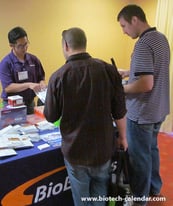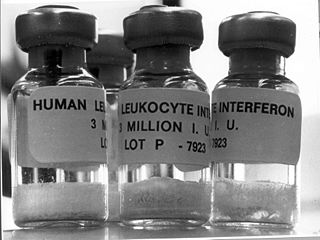 White blood cells help the immune system protect the body from infections and diseases. Along with attacking infections, white blood cells also have the ability to bring other cells together to help in the fight. With these known abilities of white blood cells, life science researchers have been researching ways to amplify the abilities of these cells to target specific illnesses, such as tumors.
White blood cells help the immune system protect the body from infections and diseases. Along with attacking infections, white blood cells also have the ability to bring other cells together to help in the fight. With these known abilities of white blood cells, life science researchers have been researching ways to amplify the abilities of these cells to target specific illnesses, such as tumors.
Tags: CA, University of California Davis Medical Center, University of California Davis, Cancer Treatment, Immune System, UCDMC, Sacramento, NIH funding, 2018
The $10 million gift from Andrew M. and Jane M. Bursky will advance cutting-edge research at the newly named Andrew M. and Jane M. Bursky Center for Human Immunology and Immunotherapy Programs. Research at the center focuses on harnessing the immune system to fight cancer, infectious diseases, and autoimmune disorders.
Read More
Tags: Washington University, Missouri, Washington University in St. Louis, new research funding, cancer research, infectious diseases, Immune System, MO, Midwest Region, immune system research, Washington Univsersity St. Louis, cancer therapy
 Millions of people suffer from allergies nationwide, (up to 30% of Americans, according to the Center for Disease Control), but for most, a healthy immune system and a course of antihistamines is all that is needed for a little relief.
Millions of people suffer from allergies nationwide, (up to 30% of Americans, according to the Center for Disease Control), but for most, a healthy immune system and a course of antihistamines is all that is needed for a little relief.
For others, however, diseases that complicate and degrade the immune system make every microbe and bacteria a potentially fatal nightmare. In recent years, people suffering from immune deficiencies have found some home in stem-cell transplants and other therapies, but their hope is tempered by inherent toxicities and associated side effects.
Read MoreTags: Fred Hutchinson Cancer Research Center, Washington, immunotherapy, Stem cell research, WA, NIH funded Research Projects, Immune System, grants, 2015, BioResearch Product Faire Event, Research Funding, Stem Cell, Seattle, Northwest Region, Hutch, Fred Hutch

Your body's circadian clock is responsible for making sure you stay healthy, by regulating metabolism and carrying out internal housekeeping chores on a steady 24-hour schedule. About 15% of genes are controlled by your bodily clock, including some important ones in your intenstines that keep infectious bacteria like salmonella in check. Dr. Paolo Sassone-Corsi is a professor of biological chemistry at the UC Irvine School of Medicine and Director of UCI's Center for Epigenetics and Metabolism. Together with his colleague, microbiologist Manuela Raffatellu of UCI's Institute for Immunology, the Irvine bio research team has recently published an article in PNAS revealing how the immune system, specifically as it works in your intestinal track, is strongly directed by circadian rhythms. Upset that biological timing and you put yourself at greater risk of getting sick.
[Drs. Sassone-Corsi and RAffatellu, courtesy of Jocelyn Lee / University Communications at UCI]
Tags: 2014, CA, 2013, University of California Irvine, Immunology, epigenetics, Southwest, California, University of California, Immune System, BioResearch Product Faire Event, Irvine, UCI, biological clock
Memorial Sloan-Kettering Cancer Center cell engineering researchers and their clinician colleagues have been in the news recently for a successful experimental cell therapy. Called targeted immunotherapy, a patient's T cells are genetically altered in the lab, then reintroduced with the directive to target and kill cancer cells. The treatment was carried out on a group of adults who all suffered from a rapidly progressing form of leukemia that had not responded to chemotherapy. All five went into remission after the novel cell treatment, and three have stayed that way for a number of months. Results of the ongoing clinical trial appeared in the March 20 online edition of the journal Science Translational Medicine, along with an article in the New York Times.
Tags: 2014, Rockefeller University, 2013, Northeast, Leukemia, immunotherapy, cancer research, New York, Memorial Sloan-Kettering Cancer Center, Cancer Treatment, Immune System, Cell Research, RockU, BioResearch Product Faire Event, NY, New York City, MSKCC

Researchers in the St. Giles Laboratory of Human Genetics of Infectious Diseases at Rockefeller University have recently published the results of a study that demonstrates how organs like the brain have their own defense systems which, when disrupted, can permit disease despite a healthy white blood cell count. The key is the production of interferon, which are proteins triggered by a receptor called TLR3 that send up the alarm to fight infection (by interfering with the pathogen's reproduction). When that TLR3 receptor is faulty on a neuron or other brain cell, no interferon is produced and the patient can suffer a disease of the brain even though that same pathogen is being combatted effectively in other parts of the body. We now know there seem to be localized systems of immune response within specific organs, and that interferon therapy may help patients with rare localized diseases.
Tags: Rockefeller University, biomedical research, Stem cell research, New York, 2012, Immune System, brain research, BioResearch Product Faire Event, NY, New York City
 It's an honor to receive a postdoctoral fellowship to continue your professional training in an established lab just after getting your PhD; it's even more prestigious to to win a postdoc fellowship to start your own lab research program. Dr. Brad Rosenberg finished the clinical portion of his M.D.-PhD program last year at Weill Cornell Medical Center, having earned his PhD from Rockefeller University through the Tri-Institutional Program two years earlier. This year he is conducting his own research at Rockefeller using advanced high-throughput sequencing techniques to analyze lymphocytes in the immune system.
It's an honor to receive a postdoctoral fellowship to continue your professional training in an established lab just after getting your PhD; it's even more prestigious to to win a postdoc fellowship to start your own lab research program. Dr. Brad Rosenberg finished the clinical portion of his M.D.-PhD program last year at Weill Cornell Medical Center, having earned his PhD from Rockefeller University through the Tri-Institutional Program two years earlier. This year he is conducting his own research at Rockefeller using advanced high-throughput sequencing techniques to analyze lymphocytes in the immune system.
Tags: Rockefeller University, New York, 2012, Immune System, BioResearch Product Faire Event, Funding, NY, NIH, New York City, BRPF
It seems that what you don't know just might hurt you when it comes to your immune system. Dr. Janko Nikolich-Zugich, immunobiologist at the University of Arizona and investigator with the BIO5 Institute, has been studying the effects of cytomegalovirus (CMV) on the human immune system's ability to combat other viruses such as West Nile or the flu as we get older. His research suggests that a person infected with CMV has a diminished immune response compared to an uninfected person. The elderly in particular show a compromised immune response and even turn out to have a lower life expectancy.
Tags: University of Arizona, Aging, Northwest, 2012, Immune System, BioResearch Product Faire Front Line Event, AZ, UAZ, Funding, NH, Tucson
There's been a lot of promising news lately on the HIV/AIDS drug and treatment front, and more scientific solutions are being developed in labs every day. Bringing new vaccine and drug treatments to fruition has been challenging, though, as test animals such as mice do not have immune systems that are similar enough to ours to predict what would really happen in a human model. Now, at bio science research labs at the Ragon Institute in Boston, scientists have overcome that obstacle by engineering a mouse with what is essentially a human immune system. The Ragon study just published in Science Translational Medicine successfully demonstrated that these "humanized mice" do in fact respond like a human does when infected with HIV. This is a big step towards developing and testing new vaccines in the lab.
Tags: Harvard University, Northeast, AIDS Research, animal research, 2012, Immune System, Boston, BioResearch Product Faire Event, MA, Harvard, BRPF, scientist solutions
The University of California Davis Medical Center recently discovered a new function of the body’s immune system through research on the protein HD6, also known as alpha-defensin 6. The discovery of HD6’s unique virus fighting methods helps researchers better understand how the body retaliates against bowel disease.
Tags: University of California Davis, Immune System, Protein Research

